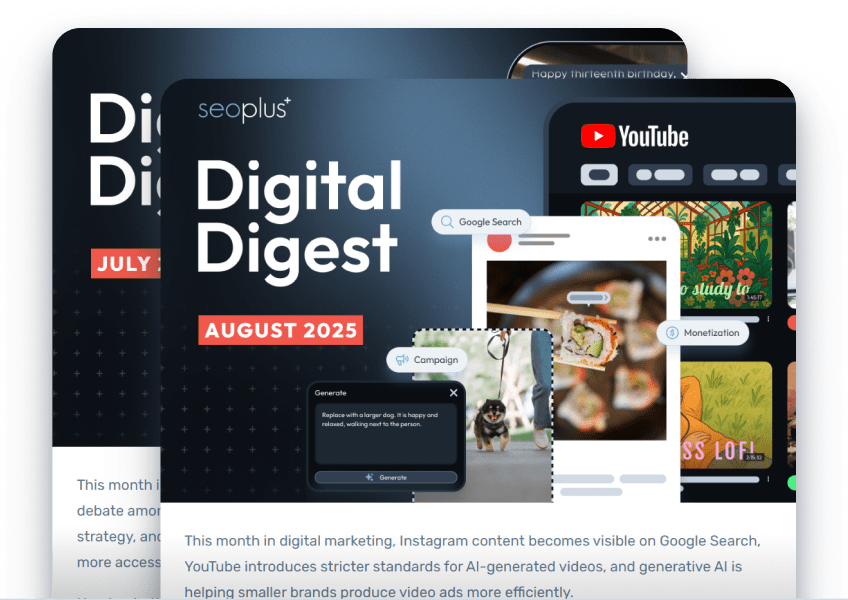Year-end is the perfect time for reflection, totalling up all the numbers, and, of course, seeing how far you’ve come. We are grateful for another amazing year with our clients. The world of SEO has also changed greatly in 2019. Today, let’s go over the five most significant changes of 2019 and what they mean for us, and your business, in 2020.
2019
1. BERT
One of the biggest changes in the world of SEO in 2019 has been the launch of BERT, Google’s new language-processing model. BERT processes natural language and will improve the search experience for people by suggesting more accurate search results. For us, this means a larger focus on clean, clear content and website structure. More on this in the 2020 trends section.
2. Core Update… times two?
A few times during the year, Google blesses us with a core update or two. In 2019, the first update was the “Google March 2019 Core Update” on March 13th. Google officially announced it on Twitter. This particular update was related to quality, with a general mandate of improving the search results (super detailed, right?). Google SearchLiason gently suggested to “remain focused on building great content” in another cryptic tweet so the main idea remains the same — focus on providing value for your target audience. For 2020, this means an even larger focus on personalization and localization. Another broad core update was released in June 2019 and then again in November 2019. Some websites saw their rankings drop, but as always, there is nothing we can do to “fix” this, besides continuing to focus on quality and ensuring a strong technical SEO background.
3. Google Discover – what’s the significance?
From its first name, Google Now, to the current name, Google Discover, this mobile feature is available on both Androids and iPhones. The goal of this feature is to provide users with useful information right on their smartphones, with no search required. Google would look at the past search trends and see what you’ve been doing (e.g. planning a trip) and then suggest information you might enjoy (touristy activities in the destination). The beauty of this is that sometimes Google Discover can drive more traffic than even Google Search! While you can’t optimize specifically for Discover, some of the SEO rules still apply and can help your site be discovered (suggested in the feature for users). These include things like posting good content, having trustworthy pages, and leveraging Google Search Console to ensure your priority pages are indexed.
4. Mobile-first indexing
Almost 60% of all Google searches are made on mobile. In 2019, Google announced that mobile-first indexing is now enabled as default on all new websites — the full roll-out of this requirement. This means that the mobile experience is prioritized, so ensure that you do not have reduced content or a diminished experience on mobile or it could hurt your desktop search performance as well. The website URL should also be the same for both desktop and mobile sites, and the website must be mobile-responsive. Use the mobile-friendly testing tool and take its recommendations.
5. Structured data
It is one thing to write specific content for your website’s service pages or blogs. But a large part of technical SEO is something called structured data — a standard way to mark up information about a specific web page so that search engines better understand what it is about. This includes creating markup in the code that explains what the page is talking about. Doing this is huge for SEO since Google will suggest more appropriate search queries for users and improve your performance if it understands your website more. In 2019, Google introduced new ways of using structured data, including “how-to” cards and FAQ type of content in the search results. Overall, structured data and Schema markup are recommended by Google to increase traffic to your site when you mark up articles or reviews and to improve brand awareness.
1. BERT
For 2020, the underlying implication of the BERT launch is the large shift in focus from content for content’s sake, to content that is actually useful for users. While that seems like common sense, this next implication is less intuitive: switch from keyword research to intent research. What are people actually looking for? Are they finding it? How can we make their experience better? More on this in the next trend.
2. Content will still reign king
You know how they say content is king? This will be more important in 2020 than ever because of models like BERT and Google’s rising quality standards. People are still searching for long-tail keywords more often than one specific keyword, trying to solve issues they are having (e.g. “how do you fix the program error in Photoshop”). Therefore, your website should consider the entire journey, not just tailor each page to an individual keyword. If you only target “Photoshop” and not the actual issue, we will just be unhappy with you and “bounce” off. The intent of the consumer is vital to understand and implement into your strategy.
3. Faster, better, stronger
If your site already has amazing content and your SEO strategy considers the consumer and their primary intent, the other piece of the conversation is the technical background. In 2020, site speed, page speed, and clean site architecture will be crucial to be successful and comply with Google’s algorithm requirements. It’s not enough to add nice photos to a basic WordPress theme and fill out the Yoast plug-in with SEO information. So, buy a coffee for your web team and have a conversation about the technicality of your SEO, including things like code minification, image compression, and browser caching.
4. Voice search
While this blew up in 2019, voice search will only continue growing steadily in 2020. The explosion of voice assistants like Google Home, Alexa and Apple Homepod is paving the way for the way consumers get their information nowadays. Google forecasts that by 2020, around 50% of all search will be voice-based. This links back to high search volume of long-tail searches and has a huge impact on SEO — is your content optimized for typing or speaking? Would you say the words on your website out loud? And again, what is the user’s intent? Put yourself into the shoes of your consumer. Remember to optimize for query-based searches such as “Who won the 2019 Stanley Cup?” and “How long to cook a turkey for?” — people will be using voice search to settle disputes with friends and to help them complete day-to-day activities.
5. Artificial intelligence (AI)
The last trend that we are going to talk about today is AI. While there are many more trends on the rise for 2020, AI is the powerful force behind Google, driving customization of search results for individuals. Since data is at the core of everything that Google does, the stronger that artificial intelligence is getting, the stronger Google’s systems will be, too. Google has already made a new feature called “Google Duplex” which sets up appointments for you and makes actual calls for you. In 2020, we will see how AI will improve Google’s ability to read text, evaluate website content, and understand testimonials — sound familiar? BERT is at the front lines of these upcoming changes and it is easy to see how this will grow exponentially next year.
Key takeaways:
- Focus on intent to understand the customer journey: talk to your audience (yes, ideally in-person).
- Fix the back-end of your website: proper technical SEO and scalability are huge.
- Stay on top of all the updates and trends to adapt proactively.
So much has happened in 2019, it would take us multiple blogs to cover everything. For now, these are the five things that stood out the most and the five trends of 2020 that are paving the way of SEO and the world of digital marketing. Technology is improving with every day that passes and this will have a huge impact on everything that we do. 2020 is shaping up to be an exciting year for us and for the world of SEO. As always, if you are looking for assistance with anything mentioned in this article, do not hesitate to reach out!
Read more about important SEO Trends of 2020 and see what our co-founder Brock Murray, had to say.






